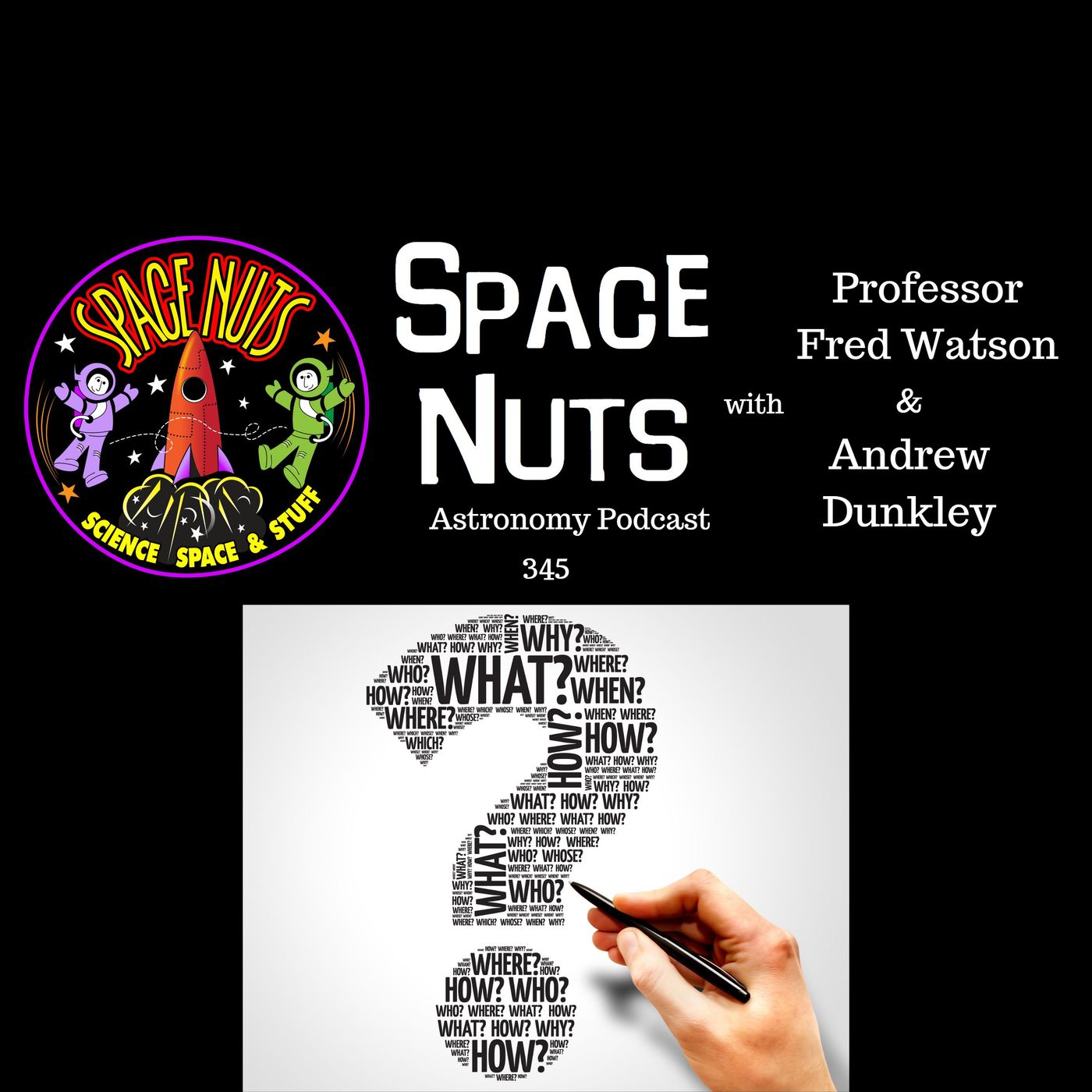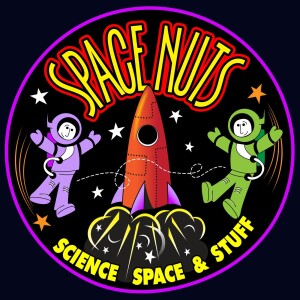
Revealing the Mysteries of Dark Matter, Dark Energy, and Neutron Stars | Space Nuts #345
 2023-03-30
2023-03-30
Download
Right click and do "save link as"
An all-listener questions episode. Hear what's on the minds of our listeners. Explore the mysterious universe and uncover the secrets of dark matter and dark energy with Andrew and Fred. "Matter tells space how to bend. Space tells matter how to move." - John Wheeler Professor Fred Watson is an astronomer and science communicator, best known for his work in the field of astrophysics. He is a regular contributor to numerous science-related media outlets around the globe. Professor Fred Watson was taken aback by Rusty's question about how the rotation curves vary with wavelength. After exploring Einstein's famous theory of gravity, Fred discussed the dangers of the neutron star and the web of dark matter that formed structures in the universe. He explained that dark energy, while being uniform throughout the universe, was the cause of the universe's accelerating expansion. He then discussed the possibility of dark matter black holes, concluding that they should behave the same as normal matter black holes. Finally, he discussed the research done by colleagues in Australia which suggested that the speed of light may have been different in the past. This thought-provoking conversation left Fred and the listeners with questions to ponder. In this episode, you will learn the following: 1. What phenomena would you encounter if you were magically transported to a neutron star? 2. What is the difference between dark matter and dark energy and how do they interact with each other? 3. Could the speed of light or charge of the electron have been different in the past? Resources: For more Space Nuts and how you can help support the show, please visit our website at www.spacenuts.io Connect with us: Facebook: spacenutspodcast YouTube: @spacenutspodcast Twitter: @spacenutspodcst Website: www.spacenuts.io Or look for us on Discord. Loved this episode? Leave us a review and rating here: https://www.bitesz.com/show/space-nuts/reviews/new/
Become a supporter of this podcast: https://www.spreaker.com/podcast/space-nuts--2631155/support.
More Episodes
Navigating the Cosmos and Redshift Riddles
 2024-10-07
2024-10-07
 2024-10-07
2024-10-07
012345678910111213141516171819
Create your
podcast in
minutes
- Full-featured podcast site
- Unlimited storage and bandwidth
- Comprehensive podcast stats
- Distribute to Apple Podcasts, Spotify, and more
- Make money with your podcast
It is Free
- Privacy Policy
- Cookie Policy
- Terms of Use
- Consent Preferences
- Copyright © 2015-2024 Podbean.com





